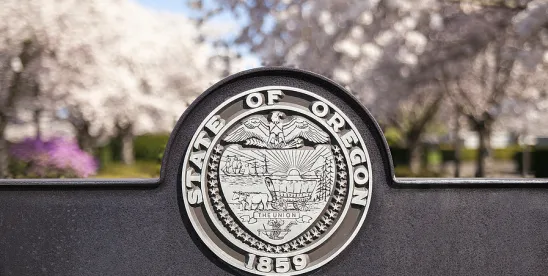Oregon’s 2025 legislative session marked a milestone for the state’s progressive environmental stance, with bills addressing topics from climate goals to emerging contaminants. Although a prominent climate bill stalled, Governor Kotek’s decisions set a clear direction for future sustainability efforts.
Recap of Environmental Issues in Oregon’s 2025 Legislative Session

Key Takeaways:
- Oregon’s 2025 legislative session focused on climate change, waste reduction, emerging contaminants, permitting reform, and water resources.
- Governor Kotek signed several environmental and sustainability-related bills into law.
- HB 3477 would have replaced the term “global warming” with “climate change” and revised greenhouse gas reduction targets, though it did not pass.
- Stakeholders, including businesses, should monitor upcoming deadlines and next steps.
- Legal experts in the region are closely tracking regulatory changes and compliance deadlines.
Oregon’s 2025 Legislative Focus
Oregon’s 2025 legislative session proved crucial for environmental advocates eager to see the state maintain its forward-thinking reputation. According to reports, legislators debated a range of bills on climate change, waste reduction, emerging contaminants, permitting reform, and water resources. Governor Kotek ultimately signed key pieces of legislation that reinforce Oregon’s standing as an environmental leader.
Climate Legislation and the Fate of HB 3477
Among the most watched proposals this session was HB 3477, a bill designed to update Oregon’s greenhouse gas reduction targets by substituting the term “global warming” with “climate change.” While this particular measure did not clear committee, stakeholders note that its concepts could reappear in future sessions. Observers suggest the language shift reflects evolving attitudes toward the scope and urgency of environmental policy.
Emerging Contaminants and Permitting Reforms
Beyond climate-specific legislation, the legislature set its sights on potential hazards like emerging contaminants. The drive to regulate and mitigate these substances demonstrates Oregon’s ongoing commitment to protecting natural resources and public health. Permitting reforms also received attention, signaling a recognition among lawmakers of the need to balance environmental goals with responsible economic development.
Waste Reduction and Water Resource Priorities
Waste reduction initiatives underscore the broader goal of curbing pollution, preserving natural habitats, and encouraging sustainable practices among both industry and residents. Likewise, protecting water resources remains high on the legislative agenda, with measures aimed at maintaining clean and abundant water supplies for future generations.
Implications and Next Steps
For businesses operating in Oregon or those considering expansion, these developments have far-reaching implications. Beveridge & Diamond (B&D) lawyers, based in the Pacific Northwest, continue to track regulatory deadlines, advising clients on how best to navigate the evolving environmental framework. Although some proposals, like HB 3477, stalled, many expect the underlying climate goals to resurface in upcoming legislative sessions—and potentially shape environmental policy at the state and regional levels.
The 2025 legislative session may be over, but Oregon’s commitment to environmental stewardship marches on. All eyes will be on how Governor Kotek’s signed legislation affects future regulatory requirements and what new measures will emerge when lawmakers reconvene.











